What is an ESG Strategy
Section 1 | BVCA Responsible Investor Toolkit
Section 3 | BVCA Responsible Investor Toolkit
Monitoring, reporting, and disclosing the performance of material ESG KPIs at both GP and portfolio level facilitates value creation and contributes to building trust between a GP and its stakeholders, especially its LPs.
Various tools/frameworks exist, which can support with disclosures and reporting, and identifying and streamlining key ESG data points, depending on the target audience.
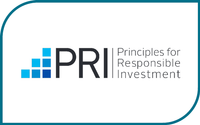
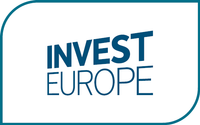
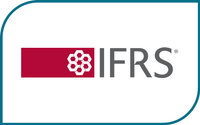
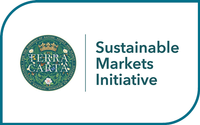

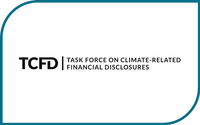
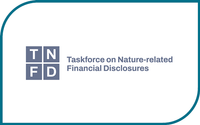
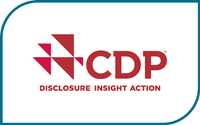


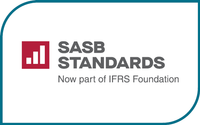

GPs are increasingly being asked by their LPs to report on their ESG investment approach and performance on an ongoing basis, to assess ESG management and to meet their own reporting requirements.
Whilst there is no exact replacement for direct engagement between GP and LP, streamlining and creating consistent data metrics can ease the reporting burden on GPs. A number of reporting and disclosure initiatives have been developed for LPs and GPs.





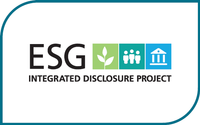
Sustainability issues, especially climate and other environmental considerations, have become deeply embedded in global political discourse. This has spurred policymakers and regulators to design and implement a range of sustainability-related rules that affect businesses across the UK financial services industry and private capital firms included. Read what the BVCA has been doing in this area here.
The BVCA remains continues to engage with UK policy developments on Green Finance, Net Zero and Biodiversity. The links below relate to recent submissions the BVCA has done on Net Zero and Green Finance.
The Recommendations of the Taskforce for Climate-related Financial Disclosures are an industry-developed, voluntary risk management and disclosure framework. They offer companies and firms a framework to report on their impact on the climate across four pillars: governance, strategy, risk management and metrics and targets.
Increasingly, policymakers have integrated the TCFD recommendations into some jurisdictions’ regulatory frameworks. For example. the FCA has implemented TCFD-based rules for large UK corporates and asset managers (including large private capital firms).
The BVCA, in collaboration with iCI and KPMG, has produced a practical guide for private capital firms seeking to use TCFD recommendations to report on climate considerations, either voluntarily or under the FCA’s TCFD-based rules (available below).
The SDR is a sustainability disclosure and labelling regime intended to apply to UK-regulated firms fully from late 2024/early 2025. It will not initially apply to non-UK funds, but may be extended to them in due course. The SDR regime came out of the Government’s green finance roadmap which set out to align financial systems with the UK’s net zero strategy.
The UK is developing SDS to incorporate the International Sustainability Standards Board (ISSB), and the International Financial Reporting Standards (IFRS) Sustainability Disclosure Standards Frameworks. These aim to create a global corporate sustainability reporting baseline to be implemented or adapted by different jurisdictions (the EU is also developing separate European Sustainability Reporting Standards, via the European Financial Reporting Advisory Group). Read more here:
The UK Green Taxonomy was announced in June 2021 as part of the government’s efforts to improve the environment, accelerate the transition to net zero and create green jobs. The UK Government announced as part of the Green Finance Road map in October 2021, that the taxonomy will apply to corporate, asset owners and managers and to investment products. As part of the updated Green Finance Strategy announcements in March 2023, the UK government confirmed the first taxonomy consultation will take place in autumn 2023.
The Green Technical Advisory Group (GTAG), an expert group chaired by the Green Finance Institute (GFI), providing non-binding advice to the Government on developing the UK Green Taxonomy, launched advice on applying the UK Green Taxonomy to wider policies on 15th August 2023. A link to this report is provided below. Included in the policy recommendations was that corporate disclosure of Taxonomy alignment and eligibility should be required as part of the UK Sustainability Disclosure Requirements (SDR) regime.
The SFDR imposes wide-ranging, mandatory disclosure obligations on asset managers and other financial institutions, with the aim of increasing transparency around sustainability within investments. It applies to EU-regulated firms and those marketing funds to EU investors.
The EU Taxonomy Regulation governs the EU’s initiative for an EU-wide classification system of economic activities that the EU defines as environmentally sustainable. The Taxonomy also introduces disclosure requirements for financial services firms in relation to the environmentally sustainable activities carried on by their investments, and disclosure requirements for companies in scope in relation to their own economic activities.
The CSRD is an EU Directive which requires companies to report on the impact of their corporate activities on people and planet.
The CS3D is an EU Directive which sets out requirements for due diligence processes within organisations’ value chains, ensuring businesses address the adverse impacts of their actions, including human rights violations and environmental risks, in their value chains inside and outside Europe.
The Private Equity Reporting Group (PERG) is the independent body which oversees enhancements in transparency and disclosure within the UK private equity industry. The Walker Guidelines set out recommendations and enhanced disclosure requirements for private equity firms, their UK portfolio companies and the BVCA.

Section 1 | BVCA Responsible Investor Toolkit

Section 2 | BVCA Responsible Investor Toolkit

Section 4 | BVCA Responsible Investor Toolkit

Section 5 | BVCA Responsible Investor Toolkit